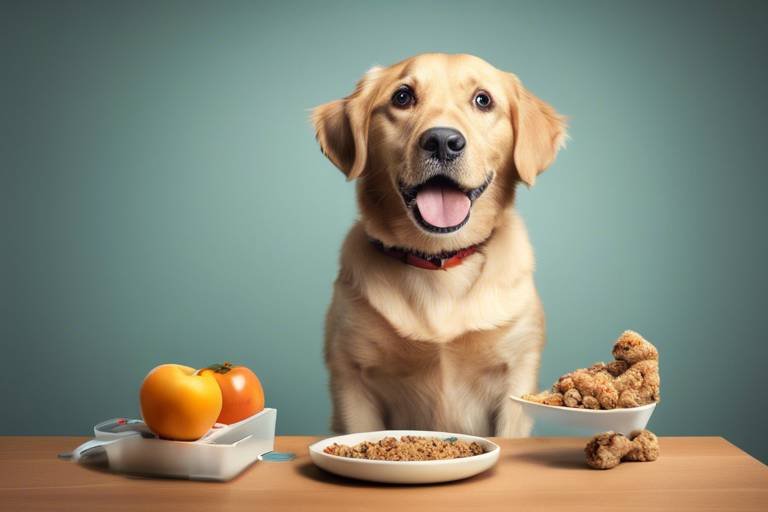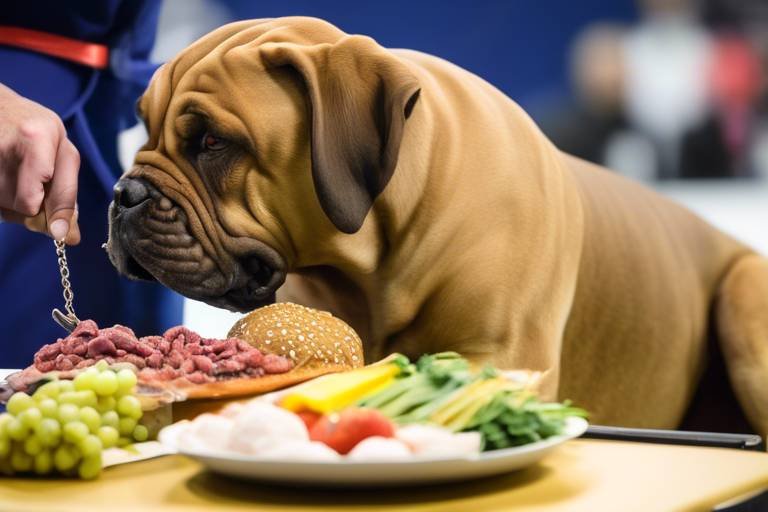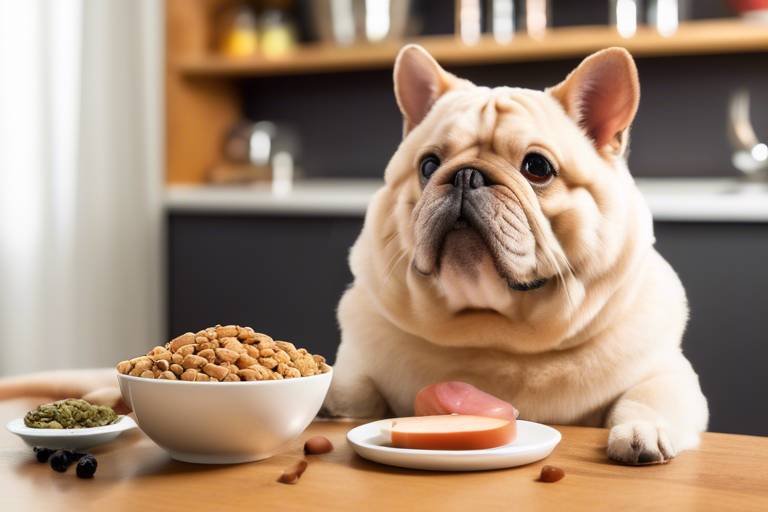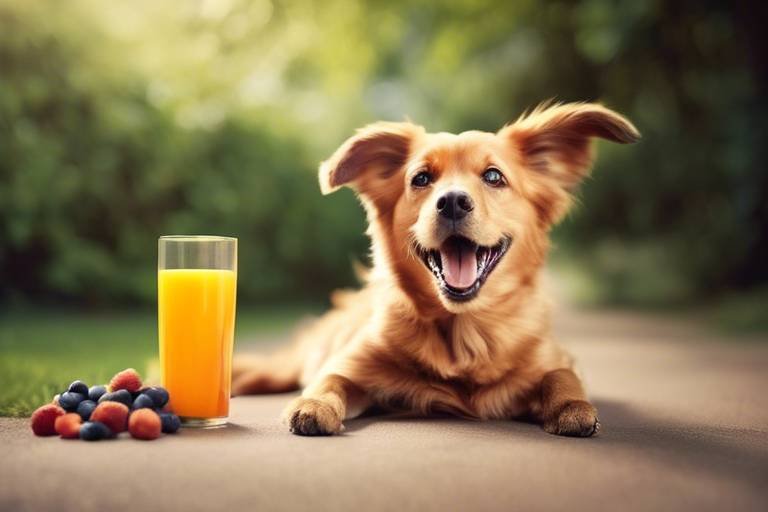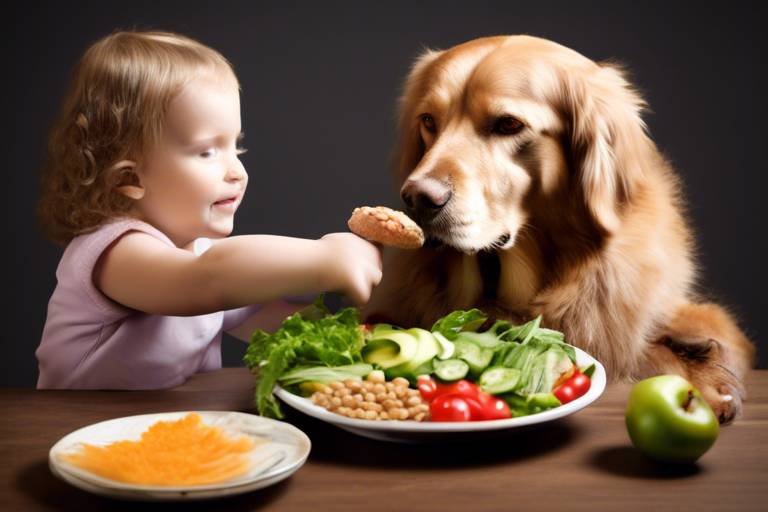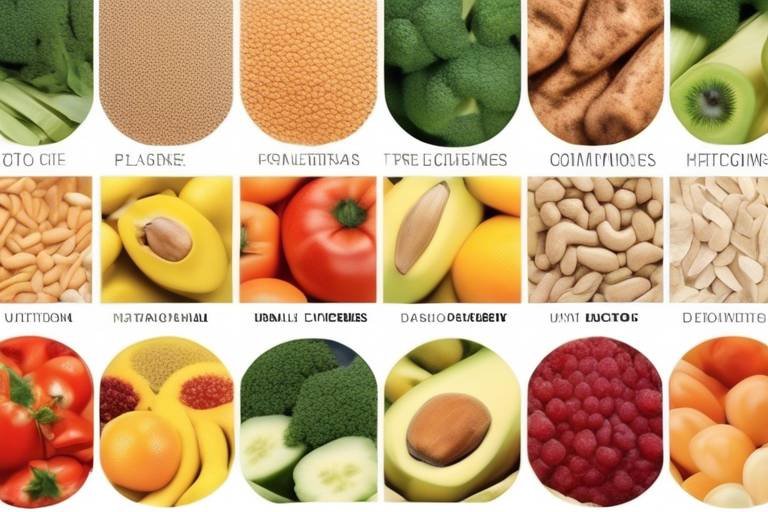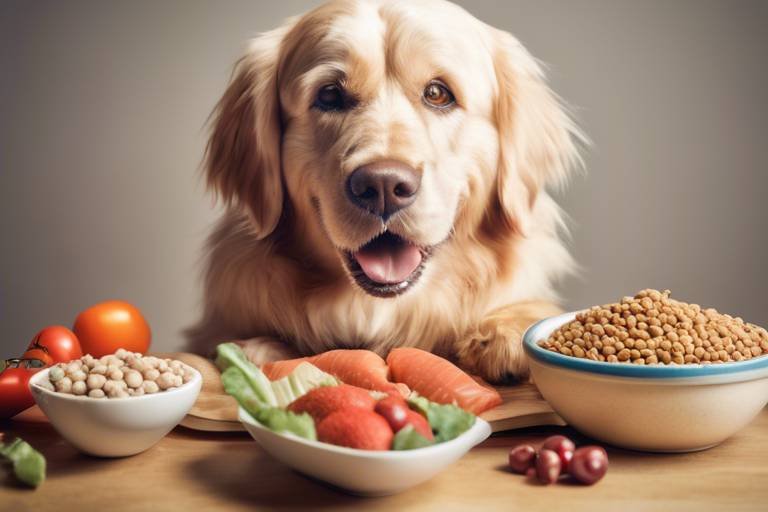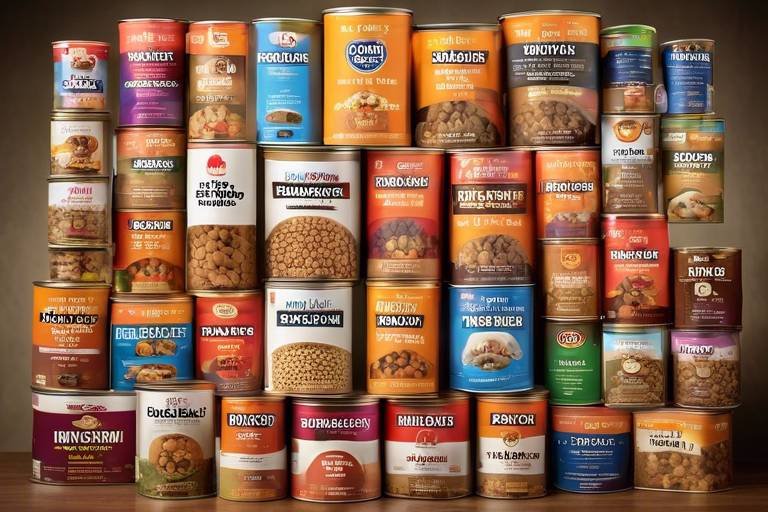The Importance of Tailoring Diets for Aging Pets
As our furry companions age, their needs evolve in ways that often surprise us. Just like humans, senior pets experience a variety of changes that require a thoughtful approach to their nutrition. It's not just about feeding them what they used to enjoy; it's about understanding their unique nutritional needs and how a customized diet can significantly enhance their quality of life. Imagine trying to run a marathon without the right fuel—pets face a similar challenge when their diets aren’t tailored to their age and health status.
One of the most critical aspects of caring for aging pets is recognizing that their metabolism slows down and their bodies become less efficient at processing certain nutrients. This means that what worked for them in their younger years may no longer be suitable. A well-balanced diet can help combat age-related issues such as obesity, arthritis, and digestive problems, which are common in older pets. By adjusting their diet, pet owners can help their beloved companions maintain a healthy weight, improve energy levels, and even enhance their overall mood.
Moreover, the importance of a tailored diet extends beyond just weight management. Senior pets may face specific health challenges that necessitate a specialized diet. For instance, pets suffering from kidney disease may require lower protein levels, while those with diabetes might need a diet high in fiber and low in simple carbohydrates. Each condition calls for a unique dietary approach, making it essential for pet owners to consult with veterinarians to develop a personalized nutrition plan.
In addition to addressing health issues, a tailored diet can also improve the pet's digestion and nutrient absorption. Ingredients rich in fiber and probiotics can support gut health, making it easier for aging pets to digest their food. Just think of it like upgrading an old computer with faster processing speeds—better nutrition can lead to improved health outcomes and a happier pet.
Ultimately, the goal of tailoring diets for aging pets is to ensure they enjoy their golden years to the fullest. By being proactive about their nutritional needs, pet owners can significantly impact their pets' health, vitality, and overall quality of life. So, let’s dive deeper into the specific nutritional needs of senior pets and how we can meet those needs effectively.
As pets age, their nutritional requirements change. Understanding these needs is crucial for providing a balanced diet that supports their health and longevity.
Older pets often face various health challenges. Recognizing these issues can help pet owners tailor diets that alleviate symptoms and promote overall well-being.
Obesity is a prevalent concern among senior pets. Implementing a weight management plan through diet can prevent further health complications and improve mobility.
Caloric requirements decrease as pets age. Adjusting portion sizes and caloric intake can help maintain a healthy weight and prevent obesity-related diseases.
Selecting low-calorie food options can aid in weight management. Understanding ingredient labels can help pet owners make informed choices for their aging pets.
Aging pets may experience digestive issues. A diet rich in fiber and probiotics can support gut health and improve nutrient absorption.
Some senior pets may require special diets due to specific health conditions, such as kidney disease or diabetes. Tailoring their diet is essential for managing these conditions effectively.
Proper hydration is vital for aging pets. Ensuring they have access to fresh water and incorporating moisture-rich foods can help prevent dehydration.
Incorporating supplements can provide additional nutrients that may be lacking in a senior pet's diet. Discussing options with a veterinarian can help optimize their health.
- What should I consider when choosing food for my aging pet? Look for age-appropriate formulas that address their specific health needs.
- How can I tell if my pet is overweight? Consult your vet for an assessment or look for signs like difficulty in movement or excessive panting.
- Are there specific supplements recommended for senior pets? Yes, omega-3 fatty acids, glucosamine, and probiotics are commonly recommended.
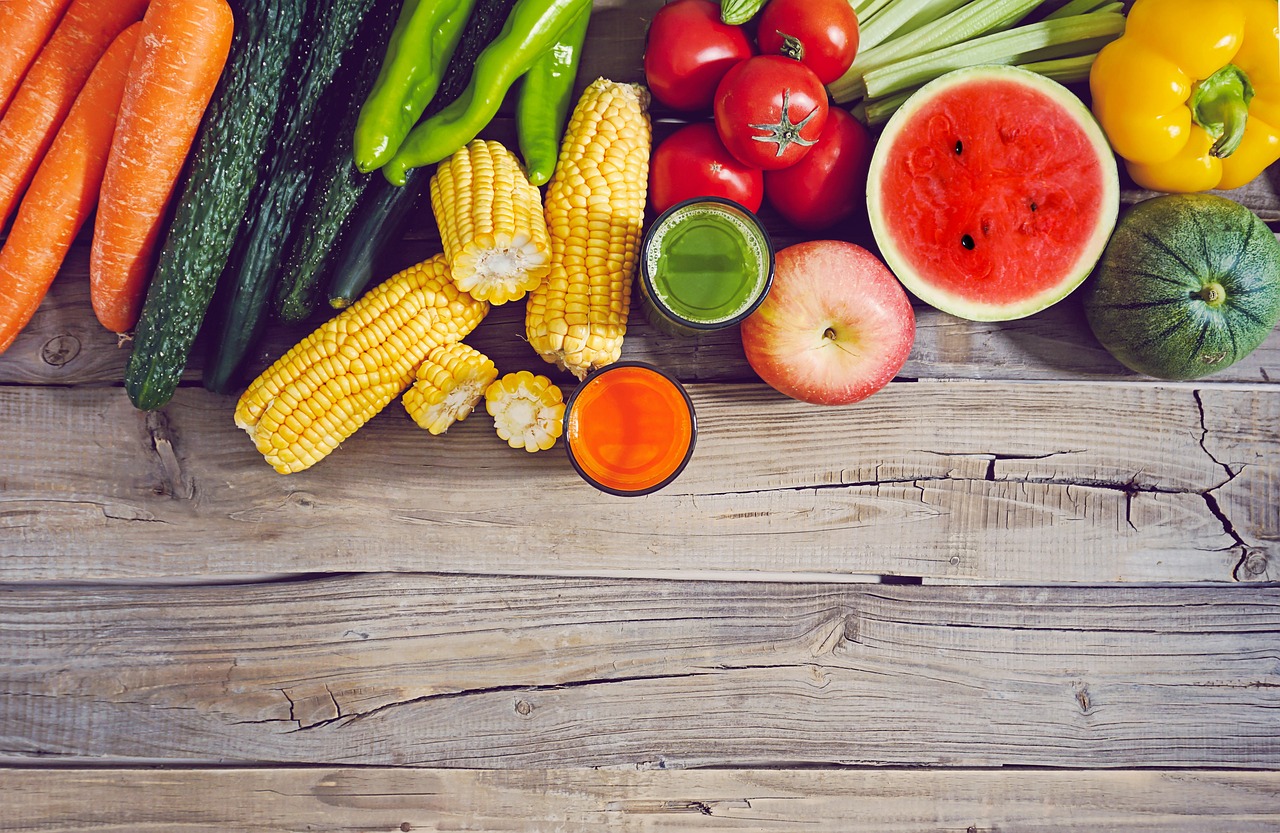
Nutritional Needs of Senior Pets
As our furry companions grow older, their nutritional needs change significantly. Just like humans, senior pets experience a variety of physiological changes that require adjustments in their diet to maintain optimal health. For instance, their metabolism slows down, which means they may not require as many calories as they did in their younger years. This shift is crucial because providing the right balance of nutrients can help manage weight, support joint health, and enhance overall vitality.
Moreover, older pets are more susceptible to certain health issues, such as arthritis, dental problems, and digestive disorders. Therefore, it's essential to focus on high-quality proteins that are easier to digest, as well as fiber-rich ingredients that promote gut health. A well-rounded diet should include:
- High-quality proteins: These are vital for maintaining muscle mass and overall energy levels.
- Healthy fats: Omega-3 and Omega-6 fatty acids can help reduce inflammation and support skin health.
- Fiber: Aids in digestion and can help prevent obesity by making pets feel fuller.
- Vitamins and minerals: Essential for overall health, particularly antioxidants that can help combat age-related diseases.
It's also important to consider the texture and palatability of the food. Many senior pets may develop dental issues that make it difficult for them to chew hard kibble. In such cases, switching to softer food or incorporating wet food can encourage them to eat more comfortably. Additionally, keeping an eye on their hydration is vital, as older pets can become dehydrated more quickly. Ensuring they have access to fresh water at all times and considering moisture-rich foods can make a significant difference.
In summary, tailoring the diet of senior pets is not just about reducing calories; it's about providing a balanced, nutrient-dense diet that caters to their specific needs. By understanding these nutritional requirements, pet owners can play an active role in enhancing their beloved companions' quality of life as they age.
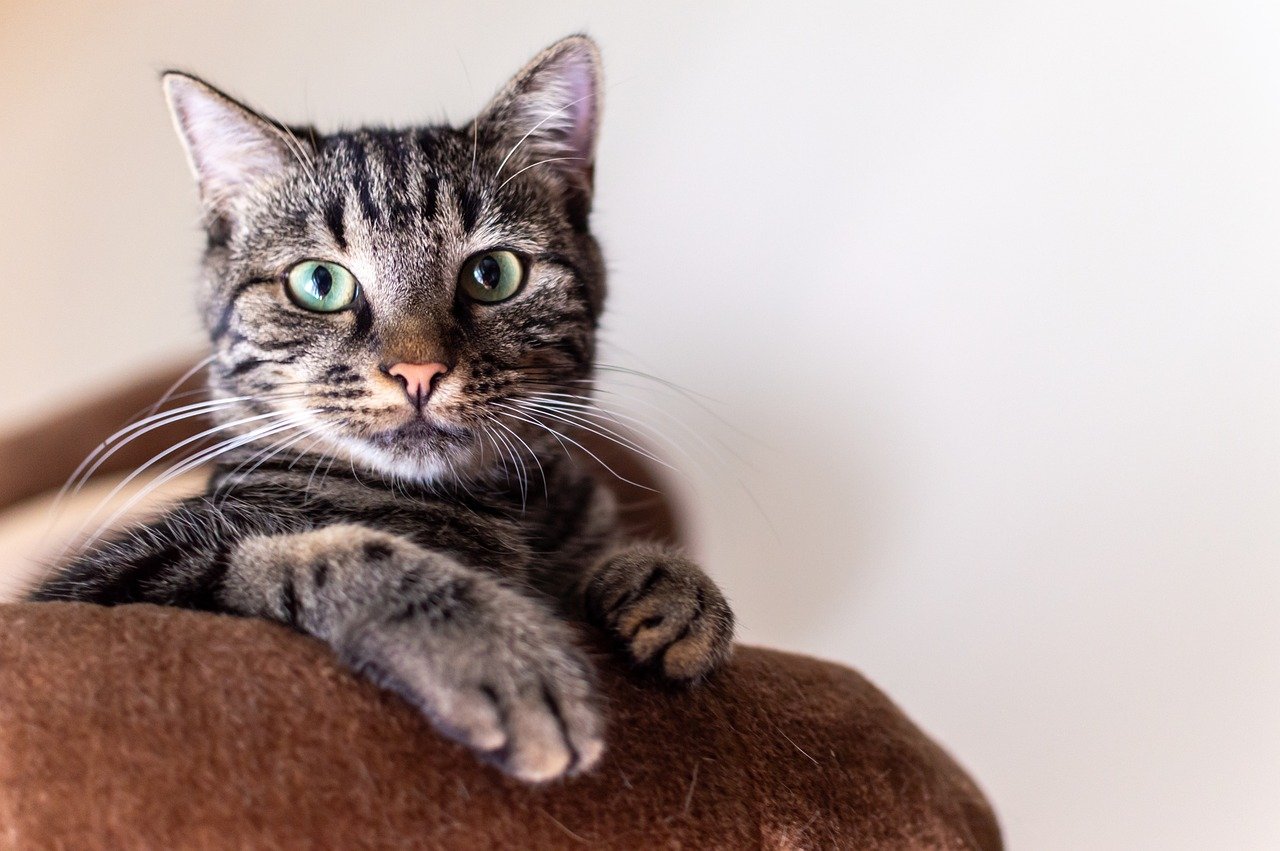
Common Health Issues in Aging Pets
As our beloved furry companions grow older, they often face a myriad of health challenges that can significantly impact their quality of life. Understanding these common health issues is vital for pet owners who wish to provide the best care possible. Aging pets may experience a range of conditions, including arthritis, dental disease, kidney problems, and diabetes. Each of these issues requires careful attention and, often, a tailored diet to help manage symptoms and promote overall well-being.
One of the most prevalent conditions in senior pets is arthritis. This degenerative joint disease can lead to pain and inflammation, making it difficult for pets to move comfortably. You might notice your pet hesitating to jump onto the couch or struggling to go up the stairs. A diet rich in anti-inflammatory ingredients, such as omega-3 fatty acids, can be beneficial in alleviating some of the discomfort associated with arthritis.
Another common issue is dental disease. As pets age, their dental health often deteriorates, leading to plaque buildup, gum disease, and even tooth loss. Regular dental check-ups are essential, but diet plays a crucial role too. Providing crunchy kibble or dental treats can help reduce plaque and keep your pet's teeth clean. Additionally, some specialized diets are formulated to support oral health, making them a great option for senior pets.
Kidney disease is yet another concern for aging pets. The kidneys are vital for filtering waste from the blood, and as they age, their efficiency can decline. Symptoms may include increased thirst, frequent urination, and weight loss. A diet lower in protein and phosphorus can help reduce the workload on the kidneys, while ensuring your pet still receives the necessary nutrients. It's essential to consult with a veterinarian to determine the best dietary approach for managing kidney issues.
Lastly, diabetes is a condition that can affect older pets, particularly those that are overweight. Managing diabetes often requires a strict diet to regulate blood sugar levels. Foods high in fiber and low in carbohydrates can be beneficial. It’s crucial for pet owners to monitor their pet's weight and caloric intake closely, as obesity can exacerbate this condition.
In conclusion, recognizing and addressing these common health issues in aging pets is essential for ensuring they lead happy, healthy lives. Tailoring their diet to meet their specific needs can make a significant difference in their overall health and well-being. Always consult with a veterinarian to create a comprehensive care plan that includes dietary adjustments tailored to your pet's unique health challenges.
- What are the signs that my pet is aging?
Common signs include decreased energy, changes in appetite, weight fluctuations, and difficulty with mobility. - How can I help my aging pet maintain a healthy weight?
Implementing portion control, choosing low-calorie food options, and ensuring regular exercise can help manage your pet's weight. - Are there specific diets for pets with kidney disease?
Yes, diets lower in protein and phosphorus are often recommended for pets with kidney issues. Always consult your vet for specific dietary recommendations. - How often should I take my aging pet to the vet?
Older pets should ideally have check-ups at least twice a year to monitor their health closely.
Obesity and Weight Management
Obesity is a growing concern among our beloved senior pets, and it’s a topic that deserves serious attention. As pets age, their metabolism slows down, and they often become less active. This combination can lead to weight gain, which can exacerbate existing health issues or even create new ones. Just like us, our furry friends can struggle with the extra pounds, making it essential for pet owners to implement a solid weight management plan.
One of the first steps in addressing obesity in senior pets is to understand their caloric needs. As pets grow older, their caloric requirements typically decrease. This means that what might have been a suitable portion size in their younger years may now lead to unwanted weight gain. Pet owners should consult with their veterinarian to determine the appropriate caloric intake for their aging pet. A simple way to think about it is like adjusting the throttle on a car; as the engine ages, it doesn’t need as much fuel to run efficiently.
When it comes to weight management, portion control is crucial. Feeding pets smaller meals throughout the day rather than one or two large meals can help keep their metabolism active. Additionally, consider incorporating low-calorie treats into their diet. These can be beneficial for training or simply as a reward without the guilt of adding extra calories. Some great options include:
- Carrot sticks
- Green beans
- Apple slices (without seeds)
Another important aspect of managing your senior pet's weight is to engage them in regular exercise. While they may not be able to run like they used to, even short walks or gentle playtime can make a significant difference. Think of it as a gentle nudge to keep them moving; every little bit helps!
To help visualize the impact of obesity on pets, consider the following table that outlines the potential consequences of excess weight:
| Health Issue | Description |
|---|---|
| Joint Problems | Excess weight puts additional stress on joints, leading to arthritis and mobility issues. |
| Heart Disease | Obesity can increase the risk of heart problems, shortening your pet's lifespan. |
| Diabetes | Being overweight raises the likelihood of developing diabetes, requiring ongoing management. |
| Reduced Quality of Life | Obese pets may struggle with everyday activities, leading to a less enjoyable life. |
In summary, managing obesity in senior pets is not just about aesthetics; it's about enhancing their quality of life and preventing serious health issues. By paying attention to their caloric needs, controlling portions, encouraging gentle exercise, and making informed dietary choices, pet owners can help their furry companions lead healthier, happier lives.
1. How can I tell if my pet is overweight?
A simple way to check is to feel your pet's ribs; you should be able to feel them without excessive pressure. Additionally, a noticeable waist when viewed from above is a good sign of a healthy weight.
2. What types of food should I avoid for my senior pet?
Avoid foods high in fillers, artificial preservatives, and excessive fats. Look for high-quality, low-calorie options that are specifically formulated for senior pets.
3. Can my senior pet still lose weight?
Absolutely! With a tailored diet and regular exercise, many senior pets can achieve a healthy weight. Always consult with your veterinarian for a safe weight loss plan.
Caloric Needs for Older Pets
As our furry companions gracefully age, their bodies undergo a myriad of changes that significantly impact their caloric needs. Just like how we might adjust our diets as we grow older, senior pets require a thoughtful approach to their nutrition. Generally speaking, the caloric requirements for older pets tend to decrease due to a slower metabolism and reduced activity levels. This means that what once was a hearty serving of kibble may now be too much for their aging bodies.
Imagine your pet as a finely-tuned engine; as the years pass, the engine runs a little less efficiently. This is why it's crucial to monitor their portion sizes and adjust their caloric intake accordingly. Many pet owners might not realize that even small adjustments can make a significant difference in their pet's health. For instance, a senior dog that previously required 1,000 calories a day might only need around 800 calories as they age. This reduction can help prevent obesity, which is a common concern among older pets.
To help you understand how to manage your senior pet's caloric intake effectively, here's a simple table that outlines general caloric needs based on weight:
| Weight of Pet (lbs) | Caloric Needs (Daily) |
|---|---|
| 5-10 lbs | 200-300 calories |
| 11-20 lbs | 300-600 calories |
| 21-40 lbs | 600-900 calories |
| 41-60 lbs | 900-1,200 calories |
| 61+ lbs | 1,200+ calories |
When determining the right caloric intake for your senior pet, it’s essential to consider factors such as their activity level, breed, and any underlying health issues. For instance, a senior Labrador that enjoys a leisurely stroll around the block will require fewer calories than a senior Jack Russell that still loves to chase squirrels. To make it easier, many pet food brands now provide feeding guidelines on their packaging, which can serve as a helpful starting point.
Lastly, keep in mind that regular check-ups with your veterinarian are vital. They can provide tailored advice based on your pet's specific health status and help you adjust their diet as needed. After all, a well-balanced diet is a key ingredient in the recipe for a long, happy life for your beloved senior pet.
Choosing Low-Calorie Options
When it comes to the dietary needs of our aging pets, is not just a suggestion; it's a necessity. As pets grow older, their metabolism slows down, and their activity levels often decrease. This means that the same amount of food that once kept them healthy can now lead to unwanted weight gain. Just like humans, pets can struggle with obesity, which can exacerbate existing health issues and lead to new ones. Therefore, selecting low-calorie foods can be a game changer in maintaining their health.
But how do you know what qualifies as a low-calorie option? It’s essential to read ingredient labels carefully. Look for foods that are high in protein and low in fats and carbohydrates. Ingredients such as whole meats, vegetables, and wholesome grains should be at the top of the list. Avoid foods with fillers like corn and soy, which don’t provide much nutritional value. Additionally, consider the following points when selecting low-calorie options:
- Portion Control: Even low-calorie foods can lead to weight gain if portion sizes are not managed correctly. Always measure your pet's food and adhere to the recommended serving sizes.
- High Fiber Content: Foods rich in fiber can help your pet feel full without adding excess calories. This can be particularly beneficial for pets who are prone to begging or scavenging for food.
- Consult with a Vet: Before making any significant changes to your pet's diet, it's always wise to consult your veterinarian. They can recommend the best low-calorie options tailored to your pet's specific needs.
Moreover, you might want to consider incorporating homemade meals into your pet's diet. Cooking at home allows you to control the ingredients and ensure that your furry friend is getting the best nutrition possible. Simple recipes using lean meats, vegetables, and whole grains can be both delicious and nutritious for your senior pet.
In summary, choosing low-calorie options for aging pets is crucial for managing their weight and overall health. By being proactive and informed about their dietary needs, pet owners can significantly enhance their pets' quality of life. Remember, a well-fed pet is a happy pet!
Q: How do I know if my pet is overweight?
A: You can assess your pet's weight by feeling their ribs. If you can't feel them easily, your pet may be overweight. Additionally, a visible waistline when viewed from above is a good indicator of a healthy weight.
Q: Can I mix low-calorie food with regular food?
A: Yes, gradually mixing low-calorie food with regular food can help your pet transition to a healthier diet. Just make sure to adjust the portion sizes accordingly.
Q: Are there specific brands of low-calorie pet food you recommend?
A: While there are many reputable brands, it's best to consult your veterinarian for specific recommendations based on your pet's health needs.
Digestive Health Considerations
As our furry companions age, their digestive systems may not function as efficiently as they once did. This decline can lead to a variety of issues, including constipation, diarrhea, and decreased nutrient absorption. Understanding the unique digestive health needs of senior pets is essential for maintaining their overall well-being. Just like humans, pets require a balanced diet that caters to their specific age-related changes. One of the most effective ways to support digestive health is by incorporating a diet rich in fiber and probiotics.
Fiber plays a crucial role in promoting healthy digestion by aiding in bowel regularity and preventing constipation. A diet high in fiber can help keep your pet’s gut moving smoothly, reducing the risk of digestive discomfort. Additionally, probiotics can enhance gut health by introducing beneficial bacteria that support digestion and improve nutrient absorption. These tiny warriors help maintain a balanced gut microbiome, which is essential for overall health. When selecting food for your senior pet, look for options that list high-quality sources of fiber, such as sweet potatoes, pumpkin, and brown rice, as well as probiotic ingredients like fermented vegetables or specific probiotic strains.
It's also important to consider the texture and form of the food. Some older pets may have dental issues that make it difficult to chew hard kibble. In such cases, wet food or softened kibble can be more palatable and easier to digest. Always keep an eye on your pet's eating habits; if they seem to struggle with their food, it might be time to switch to a more manageable texture. Remember, a happy pet is a healthy pet, and their diet plays a significant role in their happiness.
Lastly, introducing dietary changes should be done gradually. Sudden changes in diet can lead to gastrointestinal upset, which can be especially problematic for senior pets. A good rule of thumb is to mix a small amount of the new food with the old food and gradually increase the new food over a week. This slow transition helps your pet's digestive system adjust without causing unnecessary stress.
In summary, focusing on digestive health is a vital aspect of caring for aging pets. By choosing high-fiber, probiotic-rich foods and considering their specific needs, you can help ensure that your furry friend enjoys their golden years with a happy and healthy tummy.
- What are the signs of digestive issues in senior pets?
Look out for symptoms such as vomiting, diarrhea, constipation, or changes in appetite. If you notice any of these signs, consult your veterinarian. - How can I improve my senior pet's digestion?
Incorporate high-fiber foods, probiotics, and consider their food texture. Always consult your vet for tailored advice. - Is it safe to change my pet's diet?
Yes, but changes should be gradual to avoid digestive upset. Mix the new food with the old food over a week.
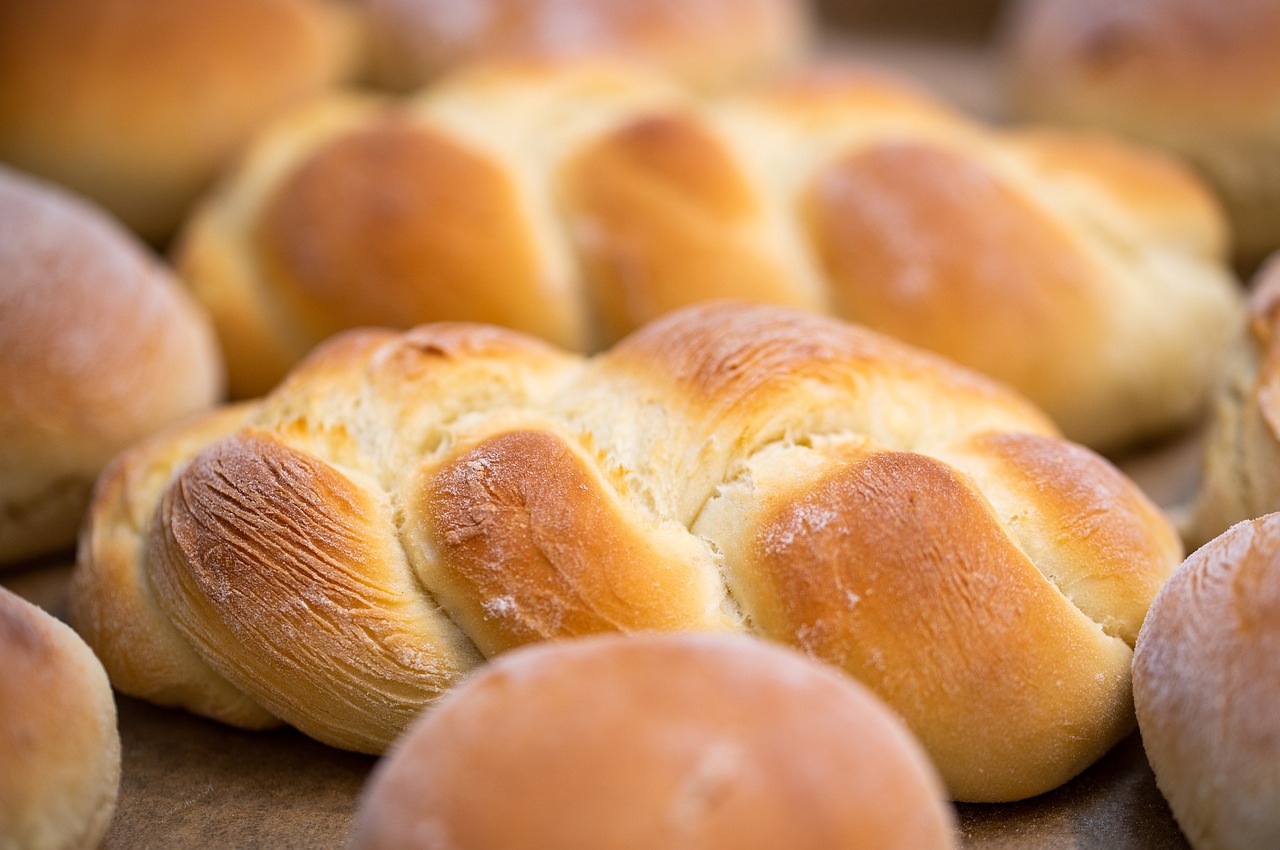
Special Dietary Requirements
As our furry companions gracefully age, they often require special dietary considerations to ensure their health and happiness. Just like humans, pets can develop specific health conditions that necessitate tailored diets. For instance, pets with kidney disease may need a diet lower in protein and phosphorus to reduce the workload on their kidneys. On the other hand, those diagnosed with diabetes might benefit from a diet high in fiber and low in carbohydrates to help regulate blood sugar levels.
It’s essential to recognize that each pet is unique, and their dietary needs may vary based on their health status, age, and activity level. Working closely with a veterinarian can help pet owners navigate these complexities. A vet can recommend appropriate food options or even suggest a homemade diet tailored to address specific health issues. This personalized approach not only focuses on managing existing conditions but also promotes overall well-being.
Another important aspect to consider is the texture and palatability of the food. Aging pets may experience dental issues that make chewing difficult. Therefore, selecting softer food or mixing in wet food can make mealtime more enjoyable for them. Additionally, incorporating moisture-rich foods can help with hydration, especially for pets that may not drink enough water. It's like giving them a refreshing drink in their meal!
Here’s a quick overview of some common dietary requirements for aging pets:
| Health Condition | Dietary Recommendation |
|---|---|
| Kidney Disease | Low protein and phosphorus |
| Diabetes | High fiber, low carbohydrate |
| Obesity | Low-calorie, portion-controlled |
| Joint Problems | Omega-3 fatty acids and glucosamine |
Moreover, it’s crucial to monitor the pet's response to any dietary changes. Keeping an eye on their weight, energy levels, and overall health can provide valuable insights into how well the new diet is working. If any adverse reactions occur, such as vomiting or diarrhea, it's essential to consult with a veterinarian immediately. Just remember, a healthy diet is like a well-tuned engine for your pet; it keeps them running smoothly and happily!
- What are the signs my pet needs a special diet? Look for weight changes, lethargy, changes in appetite, or any specific health diagnoses from your vet.
- Can I switch my pet's diet suddenly? It's best to transition gradually over a week or so to avoid digestive upset.
- Are there commercial diets for pets with special needs? Yes, many brands offer specialized formulas for various health conditions.
Hydration Needs
When it comes to our beloved aging pets, hydration is often an overlooked aspect of their health. Just like humans, as pets grow older, their bodies undergo various changes that can affect their . Senior pets may not always drink enough water, which can lead to dehydration and exacerbate existing health problems. Think of hydration as the oil in a well-running engine; without it, everything can start to grind to a halt.
Ensuring that your senior pet stays hydrated is essential for maintaining their overall health and well-being. Dehydration can lead to serious complications, such as kidney disease, urinary tract infections, and even constipation. So, how can you make sure your furry friend is getting enough water? Here are some tips:
- Fresh Water Availability: Always keep a bowl of fresh, clean water accessible to your pet. Consider using a pet water fountain, as many pets are attracted to running water and may drink more.
- Moisture-Rich Foods: Incorporating wet food into your pet's diet can significantly boost their water intake. Canned food typically contains around 70-80% moisture, compared to dry kibble, which usually has only about 10%. This can be a game changer for hydration!
- Ice Cubes or Broth: Adding ice cubes to their water bowl or offering low-sodium broth can entice your pet to drink more. Just ensure that any broth is free from harmful ingredients like onions or garlic.
It's also important to monitor your pet's hydration status. You can do this by checking their skin elasticity; gently pinch the skin on the back of their neck and release it. If it snaps back quickly, they are likely well-hydrated. If it takes time to return to normal, it might be time to step up your hydration game.
In addition to these tips, keep an eye out for signs of dehydration, such as lethargy, dry gums, or decreased appetite. If you notice any of these symptoms, consult your veterinarian immediately. They can provide guidance tailored to your pet's specific needs and may recommend additional hydration solutions.
Ultimately, staying proactive about your senior pet's hydration can significantly enhance their quality of life. Just like a well-tended garden flourishes with the right amount of water, your pet will thrive when their hydration needs are met. So, let’s make hydration a priority and keep those tails wagging!
Q: How can I tell if my pet is dehydrated?
A: Look for signs like dry gums, lethargy, and skin that doesn't snap back quickly when pinched. If you notice these signs, consult your veterinarian.
Q: Can I give my pet flavored water?
A: It's best to stick with plain water or low-sodium broth. Avoid any additives that could be harmful to pets.
Q: How much water should my senior pet drink daily?
A: On average, pets should drink about 1 ounce of water per pound of body weight each day, but this can vary based on their diet, activity level, and health conditions.
Supplements for Senior Pets
This article explores the significance of customized diets for senior pets, focusing on their unique nutritional needs, health considerations, and how proper diet can enhance their quality of life.
As pets age, their nutritional requirements change. Understanding these needs is crucial for providing a balanced diet that supports their health and longevity.
Older pets often face various health challenges. Recognizing these issues can help pet owners tailor diets that alleviate symptoms and promote overall well-being.
Obesity is a prevalent concern among senior pets. Implementing a weight management plan through diet can prevent further health complications and improve mobility.
Caloric requirements decrease as pets age. Adjusting portion sizes and caloric intake can help maintain a healthy weight and prevent obesity-related diseases.
Selecting low-calorie food options can aid in weight management. Understanding ingredient labels can help pet owners make informed choices for their aging pets.
Aging pets may experience digestive issues. A diet rich in fiber and probiotics can support gut health and improve nutrient absorption.
Some senior pets may require special diets due to specific health conditions, such as kidney disease or diabetes. Tailoring their diet is essential for managing these conditions effectively.
Proper hydration is vital for aging pets. Ensuring they have access to fresh water and incorporating moisture-rich foods can help prevent dehydration.
As our furry friends age, their bodies may not absorb nutrients as efficiently as they once did. This is where supplements come into play. Incorporating the right supplements can significantly enhance their overall health and well-being. For instance, omega-3 fatty acids are known to support joint health and reduce inflammation, which is particularly beneficial for senior pets suffering from arthritis. Additionally, antioxidants can help combat oxidative stress, thereby boosting the immune system.
It's essential to consult with a veterinarian before introducing any supplements into your pet's diet. They can provide guidance on which supplements are appropriate based on your pet's specific health needs. Some commonly recommended supplements include:
- Glucosamine and Chondroitin: These are often suggested for joint support.
- Probiotics: Beneficial for digestive health, especially in pets with sensitive stomachs.
- Vitamins and Minerals: To fill any nutritional gaps in their diet.
When selecting supplements, always look for high-quality products from reputable brands. Reading labels and understanding the ingredients can make a world of difference. Remember, the goal is to complement your pet's diet, not replace it. By providing these additional nutrients, you can help ensure that your senior pet enjoys their golden years with a spring in their step and a wag in their tail.
Q1: How do I know if my senior pet needs supplements?
A1: If your pet shows signs of aging such as decreased energy, joint stiffness, or changes in appetite, it might be time to consider supplements. Always consult with your veterinarian for personalized advice.
Q2: Can I give my pet human supplements?
A2: Not all human supplements are safe for pets. It's crucial to use supplements specifically formulated for animals to avoid harmful side effects.
Q3: How long does it take to see results from supplements?
A3: Results can vary, but many pet owners notice improvements within a few weeks of consistent use. Patience and regular monitoring are key.
Frequently Asked Questions
- What are the key nutritional needs for aging pets?
Aging pets require a diet that is lower in calories but higher in essential nutrients. They need more fiber to aid digestion and maintain a healthy weight. Additionally, protein quality becomes more important as they age, so opting for high-quality protein sources can support muscle maintenance.
- How can I manage my senior pet's weight?
To manage your senior pet's weight, it's crucial to monitor their caloric intake and adjust portion sizes based on their activity level. Incorporating low-calorie food options and providing regular exercise can prevent obesity. Always consult with your veterinarian for personalized weight management plans.
- What common health issues should I be aware of in aging pets?
Common health issues in aging pets include arthritis, dental disease, kidney problems, and obesity. Being aware of these can help you tailor their diet to alleviate symptoms and improve their overall quality of life. Regular vet check-ups are essential for early detection and management.
- How can I improve my senior pet's digestive health?
Improving your senior pet's digestive health can be achieved by providing a diet rich in fiber and probiotics. These ingredients aid gut health and enhance nutrient absorption. Look for pet foods specifically formulated for senior pets that include these beneficial components.
- Are there specific diets for pets with health conditions?
Yes, some senior pets may require specialized diets due to health conditions like kidney disease or diabetes. It's essential to consult your veterinarian for guidance on which diet will best manage your pet's specific health issues. Tailoring their diet can significantly improve their health outcomes.
- How important is hydration for senior pets?
Hydration is crucial for senior pets as it helps maintain kidney function and prevents urinary tract issues. Ensure your pet has constant access to fresh water, and consider incorporating moisture-rich foods into their diet to support hydration.
- Should I consider supplements for my aging pet?
Incorporating supplements can be beneficial for senior pets, as they may lack certain nutrients in their diet. Common supplements include omega fatty acids for skin and coat health, glucosamine for joint support, and probiotics for digestion. Always discuss with your veterinarian before starting any new supplements.



